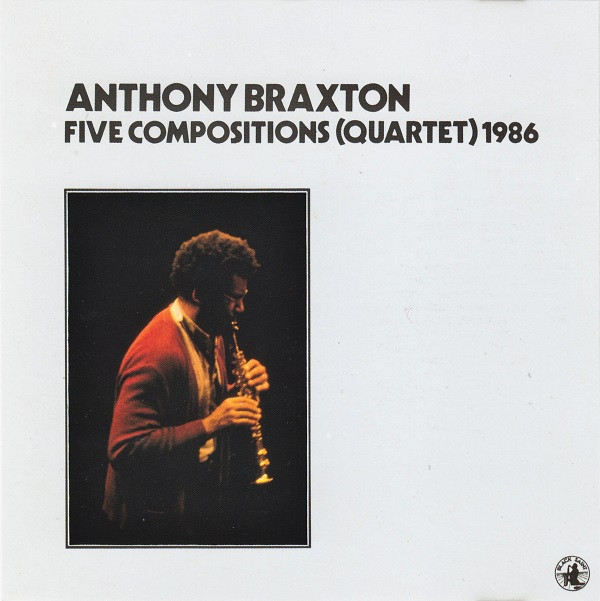You are using an out of date browser. It may not display this or other websites correctly.
You should upgrade or use an alternative browser.
You should upgrade or use an alternative browser.
Anthony Braxton’s Bar
- Thread starter mandryka
- Start date
Good luck with that request 
I look forward to any helpful answers.............
If you haven't done so already - get a flavour of how he sees the world from Wiki - Anthony Braxton - Wikipedia and Anthony Braxton discography - Wikipedia
I look forward to any helpful answers.............
If you haven't done so already - get a flavour of how he sees the world from Wiki - Anthony Braxton - Wikipedia and Anthony Braxton discography - Wikipedia
herb
brain's right hemisphere
This site contains affiliate links for which pink fish media may be compensated.
Tony L
Administrator
I’m no expert, but if you want a fairly easy way in Five Pieces on Arista from 1975 is really rather good. I’ve got this on vinyl and the 8xCD box of Black Saint and Soul Note stuff, which is more ‘modern classical/avant’ in many respects. I hear echoes of Webern, Boulez etc in his work, he’s definitely his own thing in the jazz world. I don’t know enough to add more, but I’ll be watching this thread.
PS Annoyingly the stuff I know seems to be out of print, hence my inability to spam the thread up with lovely Amazon links.
PS Annoyingly the stuff I know seems to be out of print, hence my inability to spam the thread up with lovely Amazon links.
mandryka
pfm Member
How does it look? I'm tempted, you know. Just flick through it please and tell me whether you think it'll be a source of illumination or frustration.
This site contains affiliate links for which pink fish media may be compensated.
mandryka
pfm Member
I was about to post to say I’ve finally found something which I think I actually like, but searching for the image I noticed something which suggests it isn’t “by” Anthony Braxton. Maybe I only like Braxton not by Braxton.
Here’s aforementioned image
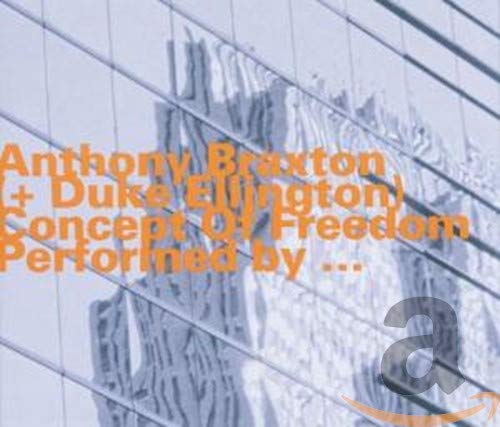
and here's a link for Tony
Anthony Braxton, Duke Ellington, Roland Dahinden, Hildegard Kleeb, Dimitris Polisoidis, Robert Holdrich - Concept of Freedom - Amazon.com Music
And here’s the comment which made me pause for thought
https://outhere-music.com/en/albums/concept-of-freedom-hatology-614
Here’s aforementioned image

and here's a link for Tony
Anthony Braxton, Duke Ellington, Roland Dahinden, Hildegard Kleeb, Dimitris Polisoidis, Robert Holdrich - Concept of Freedom - Amazon.com Music
And here’s the comment which made me pause for thought
By constructing a musical reality through the compositional impetus of Braxton and Ellington, these musicians remind us that the “Concept Of Freedom” is an ongoing challenge that requires commitment, sensitivity, creativity, and vigilance, and that Art is not an escape from life, but an experience essential to life's meaning and value. — Art Lange
https://outhere-music.com/en/albums/concept-of-freedom-hatology-614
mandryka
pfm Member
As the above comment indicated, I've been struggling a bit with most of the stuff I've found so far.
I started listening to Composition 40F/23J. It is clearly very fine music, full of ideas etc. And these guys are obviously a team, and produce some long incandescent passages.
But there’s something about the timbre of the ensemble which I don’t like, all that music made by blowing through metal tubes - even though they make some unexpected noises. Maybe I’ll acclimatise to it. But there’s another thing which I really don’t like and I may not acclimatise. The structure is basically a lot of passages of people grandstanding one player after the other, like a concerto, like trad jazz. That’s a bit hard for me.
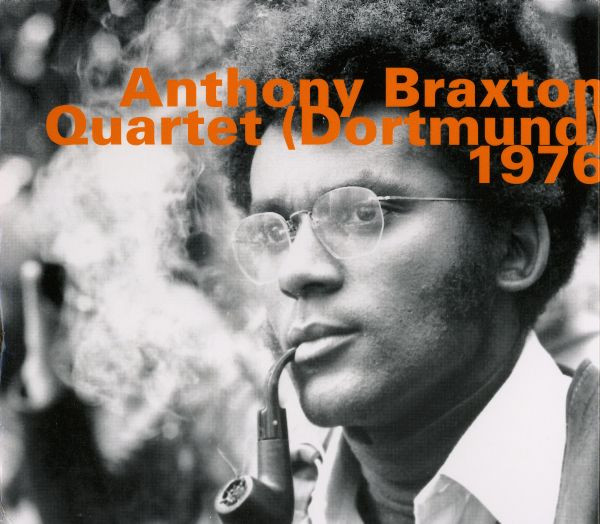
Dortmund 1976: Amazon.co.uk: Music
I started listening to Composition 40F/23J. It is clearly very fine music, full of ideas etc. And these guys are obviously a team, and produce some long incandescent passages.
But there’s something about the timbre of the ensemble which I don’t like, all that music made by blowing through metal tubes - even though they make some unexpected noises. Maybe I’ll acclimatise to it. But there’s another thing which I really don’t like and I may not acclimatise. The structure is basically a lot of passages of people grandstanding one player after the other, like a concerto, like trad jazz. That’s a bit hard for me.

Dortmund 1976: Amazon.co.uk: Music
This site contains affiliate links for which pink fish media may be compensated.
ciderglider
pfm Member
I'm no expert on AB, nor an admirer, but my impression is that he works both in improvised and in notated music. And squiggles for titles.Who can guide me through his formidable quantity of recordings?
What is he about - graphic scores à la Cardew? Structured improvisations à la Richard Barrett? Or what?
mandryka
pfm Member
And this didn't go down well
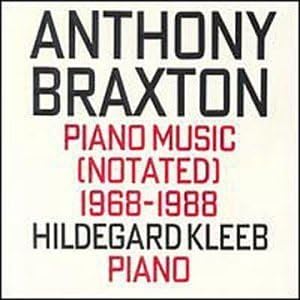
Braxton: Piano Music 1 & 2 (Notated) 1968-1988 (1995-10-19) by : Amazon.co.uk: Music
Too many notes, too long, too much piano!

Braxton: Piano Music 1 & 2 (Notated) 1968-1988 (1995-10-19) by : Amazon.co.uk: Music
Too many notes, too long, too much piano!
This site contains affiliate links for which pink fish media may be compensated.
Elephantears
Trunkated Aesthete
His high point for me is the quartet with Marilyn Crispell, Gerry Hemmingway, and Mark Dreser. Try the Willisau (Quartet) recordings; these are superb.
mandryka
pfm Member
I hear echoes of Webern, Boulez etc in his work, he’s definitely his own thing in the jazz world. I don’t know enough to add more, but I’ll be watching this thread.
This is the one, I'm told, for those echoes. I have only listened to about 20 minutes. Like him or not, he's clearly a great force of nature!
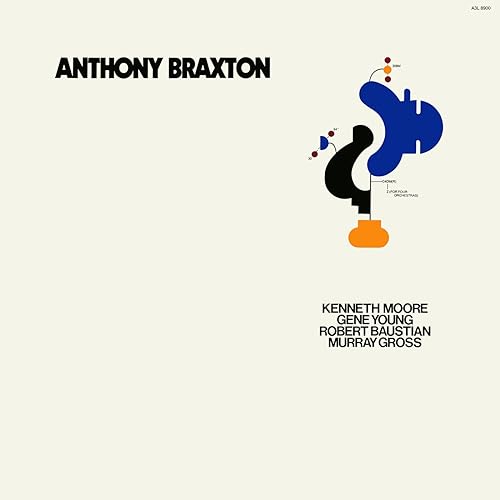
For Four Orchestras by Anthony Braxton on Amazon Music - Amazon.co.uk
This site contains affiliate links for which pink fish media may be compensated.
paulfromcamden
Baffled
Strongly recommend this - it's nominally a tour diary (of the aforementioned quartet with Crispell et al) and far more accessible than you might think considering the subject. I can't get my head around a lot of Braxton but this helped!
You might also find this interview by Alexander Hawkins interesting (Alex is a longtime Braxton fan)
https://www.cafeoto.co.uk/archive/2018/06/13/anthony-braxton-conversation-alexander-hawkins/
I really like this duets record he made with Roscoe Mitchell - though I'm not sure if this is the kind of Braxton you're interested in?
This site contains affiliate links for which pink fish media may be compensated.
kjb
Proof reading not always a strength
I've only dipped a toe in the world of Braxton and he's more often in the "admire rather than enjoy" category. I saw him once with Cecil Taylor which was fascinating. I've just checked and found this very low fi recording from the show on youtube, which was a surprise and gives a flavour of the set.
Record wise, I do love this Standards records which has been played regularly since I bought it 15 or so years ago
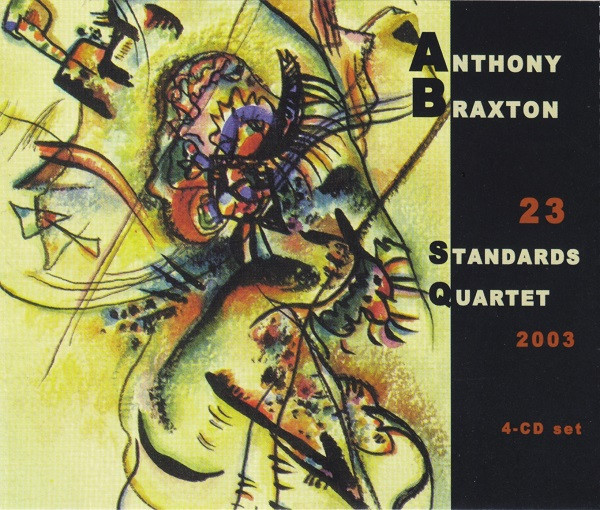
It's a very conservative version of Braxton and was derided in some quarters and there were some allegations made - unfounded in my view - that he couldn't hold a tune. I love Kevin O'Neill's guitar playing on this record.
Here's a little taster: Braxton plays Brubeck!
This is often recommended as a way in to the recordings. I have it but have to confess it's not been played that much
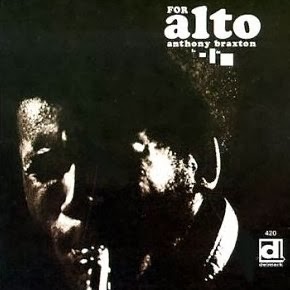
For Alto: Amazon.co.uk: Music
Mary Halvorson studied with him and offers some insights in many of her interviews.
Record wise, I do love this Standards records which has been played regularly since I bought it 15 or so years ago

It's a very conservative version of Braxton and was derided in some quarters and there were some allegations made - unfounded in my view - that he couldn't hold a tune. I love Kevin O'Neill's guitar playing on this record.
Here's a little taster: Braxton plays Brubeck!
This is often recommended as a way in to the recordings. I have it but have to confess it's not been played that much

For Alto: Amazon.co.uk: Music
Mary Halvorson studied with him and offers some insights in many of her interviews.
This site contains affiliate links for which pink fish media may be compensated.
herb
brain's right hemisphere
How does it look? I'm tempted, you know. Just flick through it please and tell me whether you think it'll be a source of illumination or frustration.
Sun Ra, Schoenberg, Wagner, Afro-American music in general, spirituality, recording practices, other Jazz guys, explanation of the squiggles, touring the UK. There is much that I am interested in and I will put it on top of the pile.
My go to CD box is the Black Saint 8CD box but it is not now listed on Amazon. He plays some Monk compositions, I wish he had not messed about with them though.
mandryka
pfm Member
I really like this duets record he made with Roscoe Mitchell - though I'm not sure if this is the kind of Braxton you're interested in?
You knew I would like that, didn't you? Wonderful (or at least the first track.) Thanks.
Book ordered.
Tantris
pfm Member
I’ve dug quite deeply into various parts of the Braxton discography, but am far from an expert – there’s too much for that! Looking through my shelves, here’s my take;
Early recordings (For Alto, B-Xo/N-0-1-47a, this time, and so on)
I collected a lot of these because I am very interested in the late 60s / early 70s period of free jazz, and particularly the experience of black American musicians in Paris, and the development of improvised music in Germany, Italy and the UK. I rarely revisit the Braxton recordings from this time, as I find them quite self-conscious, calculated, and derivative of other music (Stockhausen, Boulez et alia). Others disagree with me, and find a lot in these recordings. Other recordings from this period on which Braxton appears are hit and miss – Jacques Coursil’s Black Suite, and Alan Silva’s Luna Surface both feature Braxton and are superb, but others such as Afternoon of a Georgia Faun with Marion Brown smack of pretentiousness (to me).
70s & 80s
The Arista recordings are a high point, especially New York, Fall 1974, and The Montreux/Berlin Concerts. They link directly to other highly creative, assertive and engaging music – the recordings with Circle (Chick Corea, Dave Holland, Barry Altschul & Braxton), and Dave Holland’s Conference of the Birds, for example, in which Sam Rivers and Braxton combine sublimely. These lead naturally to the great recordings from the classic Braxton - Crispell – Dresser – Hemingway quartet in the mid-80s (the period on which the Forces in Motion book focusses), with the Birmingham, London and Willisau recordings being highly recommendable – and a good place to start with Braxton. I’ll also mention Composition 98, a quartet with Braxton, Hugh Ragin, Ray Anderson and again Marilyn Crispell, which is an extraordinary piece of music and which rather beautifully weaves the clinical & abstract aspects of Braxton’s music (the Stockhausen influence) with the organic fluidity of improvised jazz – I think much of his later music stems from the root of this composition, and I revisit the original HatArt LP fairly often. Again, other recordings during this time often seem much less successful to me, so tread carefully!
90s to date
There is a tremendous amount of music on the discography from this period, and I haven’t kept up with a lot of it. I’ll mention two recordings that I revisit often. The first is the Ghost Trance Music for quartet, from 2006. Highly accomplished music of real depth and beauty in a chamber setting. The second is the Ninetet recordings from the Iridium, also from 2006, which I consider a high water mark of improvised music – profound, deeply considered, exciting, endlessly engrossing. Also a great introduction to both Mary Halvorson and Taylor Ho Bynum. Actually, I’ll also mention a third – the Istanbul sextet, which is quite different from most other Braxton music I’ve listened to, and worth tracking down.
Early recordings (For Alto, B-Xo/N-0-1-47a, this time, and so on)
I collected a lot of these because I am very interested in the late 60s / early 70s period of free jazz, and particularly the experience of black American musicians in Paris, and the development of improvised music in Germany, Italy and the UK. I rarely revisit the Braxton recordings from this time, as I find them quite self-conscious, calculated, and derivative of other music (Stockhausen, Boulez et alia). Others disagree with me, and find a lot in these recordings. Other recordings from this period on which Braxton appears are hit and miss – Jacques Coursil’s Black Suite, and Alan Silva’s Luna Surface both feature Braxton and are superb, but others such as Afternoon of a Georgia Faun with Marion Brown smack of pretentiousness (to me).
70s & 80s
The Arista recordings are a high point, especially New York, Fall 1974, and The Montreux/Berlin Concerts. They link directly to other highly creative, assertive and engaging music – the recordings with Circle (Chick Corea, Dave Holland, Barry Altschul & Braxton), and Dave Holland’s Conference of the Birds, for example, in which Sam Rivers and Braxton combine sublimely. These lead naturally to the great recordings from the classic Braxton - Crispell – Dresser – Hemingway quartet in the mid-80s (the period on which the Forces in Motion book focusses), with the Birmingham, London and Willisau recordings being highly recommendable – and a good place to start with Braxton. I’ll also mention Composition 98, a quartet with Braxton, Hugh Ragin, Ray Anderson and again Marilyn Crispell, which is an extraordinary piece of music and which rather beautifully weaves the clinical & abstract aspects of Braxton’s music (the Stockhausen influence) with the organic fluidity of improvised jazz – I think much of his later music stems from the root of this composition, and I revisit the original HatArt LP fairly often. Again, other recordings during this time often seem much less successful to me, so tread carefully!
90s to date
There is a tremendous amount of music on the discography from this period, and I haven’t kept up with a lot of it. I’ll mention two recordings that I revisit often. The first is the Ghost Trance Music for quartet, from 2006. Highly accomplished music of real depth and beauty in a chamber setting. The second is the Ninetet recordings from the Iridium, also from 2006, which I consider a high water mark of improvised music – profound, deeply considered, exciting, endlessly engrossing. Also a great introduction to both Mary Halvorson and Taylor Ho Bynum. Actually, I’ll also mention a third – the Istanbul sextet, which is quite different from most other Braxton music I’ve listened to, and worth tracking down.
Great recommendations already. Easy to forget how extraordinary it is that an artist like Braxton was signed to major label like Arista at all.
I would like to add the duets with Max Roach and Berlin/Montreux with Althschul, Holland, Wheeler, Lewis.
I have been lucky enough to see him live in various guises over the years most recently the residency with standards band at Cafe OTO. His range and output is extraordinary. I’m firmly in the Braxton is a genius genius camp though not from any deep understanding.
have to disagree with Tantris on the Marion Brown record though!
In addition to Graham Locks definite work there is an excellent chapter on the Braxton Arista period in Bill Shoemakers Jazz in the 70s book.
I would like to add the duets with Max Roach and Berlin/Montreux with Althschul, Holland, Wheeler, Lewis.
I have been lucky enough to see him live in various guises over the years most recently the residency with standards band at Cafe OTO. His range and output is extraordinary. I’m firmly in the Braxton is a genius genius camp though not from any deep understanding.
have to disagree with Tantris on the Marion Brown record though!
In addition to Graham Locks definite work there is an excellent chapter on the Braxton Arista period in Bill Shoemakers Jazz in the 70s book.
paulfromcamden
Baffled
In addition to Graham Locks definite work there is an excellent chapter on the Braxton Arista period in Bill Shoemakers Jazz in the 70s book.
That looks interesting - thanks. I enjoy Bill Shoemaker's writing so another one for the wishlist when I've hacked through a bit of the current pile.
Amazon link: https://www.amazon.co.uk/dp/1442242094/?tag=pinkfishmedia-21
This site contains affiliate links for which pink fish media may be compensated.
Tony L
Administrator
Easy to forget how extraordinary it is that an artist like Braxton was signed to major label like Arista at all.
They took some cool risks, e.g. Patti Smith was right out there in ‘75 when Horses was released.
mandryka
pfm Member
His high point for me is the quartet with Marilyn Crispell, Gerry Hemmingway, and Mark Dreser. Try the Willisau (Quartet) recordings; these are superb.
Really enjoying Composition 101 with a slightly different lineup - David Rosenbloom, Hemingway and Dresser. But thanks for sending me down this avenue, which is proving fruitful. It’s on this
